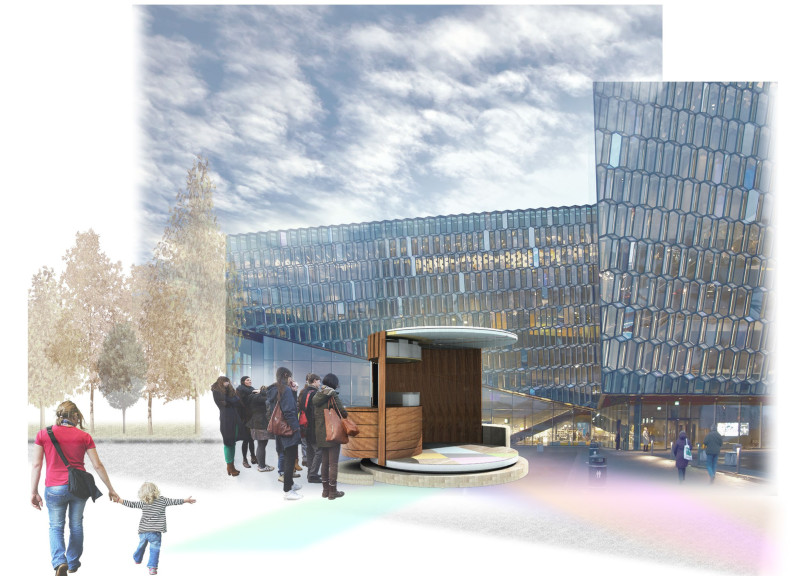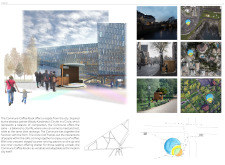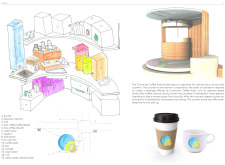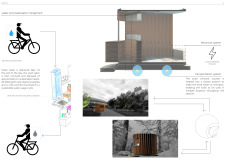5 key facts about this project
### Project Overview
The Commune Coffee Kiosk is situated within a bustling urban environment, designed to serve as both a social hub and a respite for city dwellers. The architectural concept draws inspiration from Wassily Kandinsky's painting "Circles in a Circle," focusing on balance and composition. The kiosk provides a versatile space for interaction, encouraging users to pause and enjoy quality coffee amidst the city's activity.
### Design Concept and User Experience
The design emphasizes fluidity and harmony with circular forms and interconnected spaces that promote community engagement. The circular geometry facilitates social interaction among patrons and optimizes natural light and ventilation for enhanced comfort. Two distinct counter systems—a central counter for patrons desiring to linger and an outer crescent-shaped counter for those on the go—support efficient user flow and operational flexibility, accommodating varied user needs throughout different times of day.
### Materiality and Sustainability
The architectural palette integrates sustainable and durable materials that prioritize both aesthetics and practicality. Curved glass elements in the form of sliding windows and hinge doors foster transparency and connect the interior with the surrounding urban environment, while removable curved wood paneling provides aesthetic appeal and adaptability based on weather conditions. Structural wooden support posts contribute to the overall organic feel of the space, enhancing the kiosk's connection to nature.
Key operational features support sustainability, including a water management system designed for efficient use and treatment of wastewater, ensuring all waste is handled responsibly. Generators provide a reliable electrical supply, allowing independence from urban infrastructure. The modular design of the kiosk enables easy relocation, with the outer crescent counter able to rotate and fold for transport, reflecting adaptability to changing seasonal demands and usage patterns.





















































